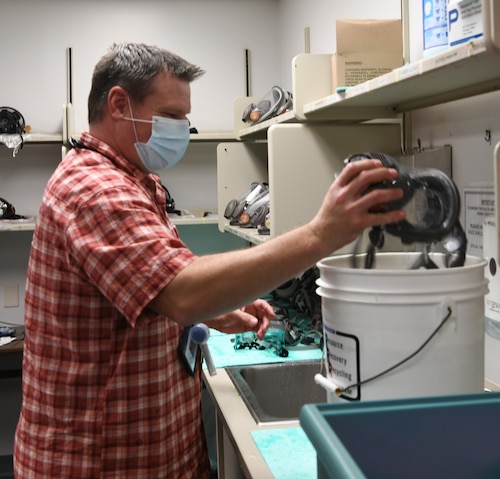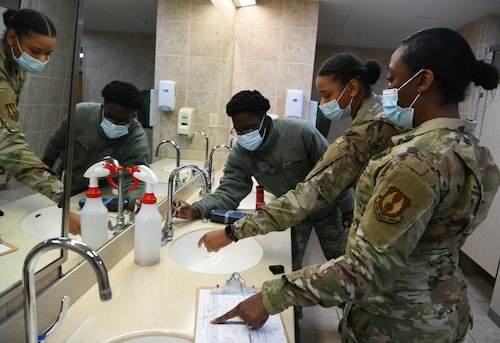Bioenvironmental Engineers: ‘jack of all trades’ keeping Airmen safe
In any line of work, there's the chance of an occupational hazard. What’s the probability of an injury or death occurring?
Working to answer those questions is the 78th Bioenvironmental Engineering Flight at Robins Air Force Base, Georgia.
“Our bread and butter are health risk assessments,” said Lt. Col. Andrew Wagner, 78th BEF commander. “Our daily playbook is AREC - we Anticipate, Recognize, Evaluate and Recommend controls in an ongoing effort to keep workers safe while completing their missions.”
According to Wagner, Robins is the largest industrial complex in Georgia. As such, he believes this is the best place for BEF technicians to learn about industrial hygiene.
Industrial hygiene is the science of improving workplace conditions under a variety of settings like chemical, physical, biological or ergonomic stressors.
“We are a jack-of-all-trades,” said Master Sgt. Timothy Heath, 78th BEF chief. “It is our job to know the ins and outs of all the jobs on this installation. For example, we know some workers are exposed to loud noises by putting rivets on aircraft. In those situations, they need to use personal protective equipment for their ears. Whatever the job, when people retire we want them leaving with their body intact, having their hearing, eye sight, fingers and limbs.”
The flight’s slogan is “Keeping Robins in the know.”
BEF performs exposure assessments. This determines the hazards employees are exposed to on the job.
Technicians categorize exposures as acute and chronic.
An acute case is one in which there is an immediate health effect. While a chronic condition shows up months or years later.
“Science is ever changing. Back in the day, they didn’t know that building ships with big sheets of asbestos could have deadly side effects,” said Heath. “We don’t have a crystal ball to tell us workers are going to be 100% okay.”
Wagner added, “What this flight is doing, to the best of our ability, is to reduce exposures or eliminate exposures to a potential problem. Can we substitute a harsh chemical for one less harmful? Is there better shield to block radiation? We are constantly reviewing different processes because lives are on the line.”
To stay on top of matters, the flight conducts routine assessments.
“We have 225 high and moderate risk industrial workplaces,” said Wagner. “The high risk shops we visit annually, the moderate risk shops are visited every 30 months and the low risk shops are assessed every four years.”
BEF technicians are multi-faceted.
They conduct monthly water compliance tests to make sure drinking water is free of contaminants and ensure chlorine levels are appropriate. If there are problems, they work with the 78th Civil Engineer Squadron to correct the issue.
Airmen also perform weekly mask fitting tests for individuals whose jobs require them.
And, the flight collaborates with many other areas.
“If a fire chief needed advice about first responders potentially being exposed to chemicals or radiation, they would consult us to provide a health risk assessment, “said Wagner.
BEF also has its share of occupational hazards.
“Since our BEF techs go out to observe, monitor and assess industrial worksites on base, their exposures are similar to those workplaces they visit. So they have to be on guard and protected as well.”
A 'jack of all trades' flight working daily to master the art of keeping workers healthy and the base operating safely.


